First Mickle Edition: (xii), clxvii, 484 pages, full calf, the upper board is detached - bound as a tight back - corners worn and bumped, red leather title label on the spine, book plates on the front endpapers, contents crisp and bright.
Britannica (https://www.britannica.com/topic/The-Lusiads) 'The Lusiads, epic poem by Luís de Camões, published in 1572 as Os Lusíadas. The work describes the discovery of a sea route to India by Vasco da Gama. The 10 cantos of the poem are in ottava rima and amount to 1,102 stanzas.
'The action of the poem begins after an introduction, an invocation, and a dedication to King Sebastian. Da Gama’s ships are already under way in the Indian Ocean, sailing up the coast of East Africa, and the gods of Greco-Roman mythology gather to discuss the fate of the expedition (which is favoured by Venus and attacked by Bacchus). The voyagers spend several days in Melinde on the east coast of Africa, and, at the request of the king of Melinde, da Gama recounts the entire history of Portugal, from its origins to the inception of their great voyage (Cantos III, IV, and V). These cantos contain some of the most compelling passages in the poem. When they reembark, Bacchus tries to arrange the shipwreck of the Portuguese fleet but is prevented by Venus, and da Gama is able to reach his destination, Calicut (Kozhikode, now in Kerala state, southwestern India) on the Malabar Coast. On their homeward voyage the mariners chance upon the island Venus has created for them, and the nymphs reward them for their labours. One of the nymphs sings of the future deeds of the Portuguese, and the entertainment ends with a description of the universe given by da Gama and the Nereid Thetis. The sailors again set sail for home.'
Howgego (Raymond John) Encyclopedia of Exploration, Volume I, C27, pages 182/3, 'Camoëns, Portuguese epic poet and traveller (1524-80)...Soon after reaching Goa, Camoëns took part in a punitive expedition against the King of Chembe on the Malabar Coast (November 1553). After returning to Goa, he served in an expedition to the Red Sea and, while sailing from Cape Guardafui to Hormuz, captured six Turkish ships of Muscat. He returned to Goa and there wrote the first six books of The Lusiads....the poem loosely places the voyage of Vasco da Gama into a mythical heroic framework reminiscent of the Aeneid. Camoëns received very little recognition during his lifetime, and none of his other works were published. He died in the plague of Lisbon in 1580. In 1880 his remains were removed to the church of Belem that Manoel the Fortunate (1459- 1521) had built to celebrate the discovery of the sea route to India.'
A South African Bibliography, volume 1, page 369, Mentions an error in the pagination pages 153/154 being omitted but the text is complete.
- Overall Condition: Very good
- Size: 4to (280 x 215 mm)

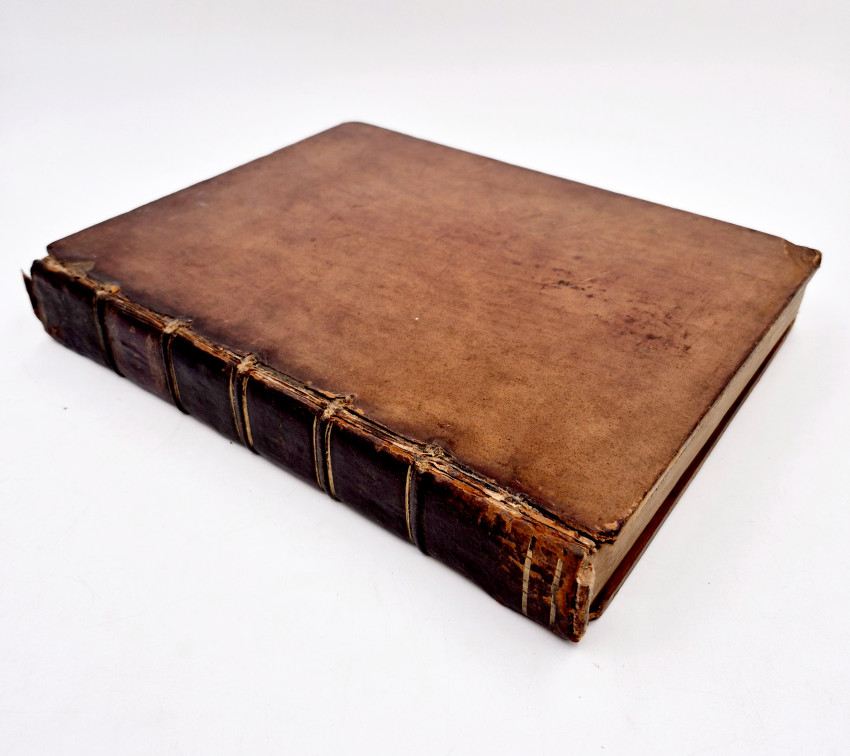
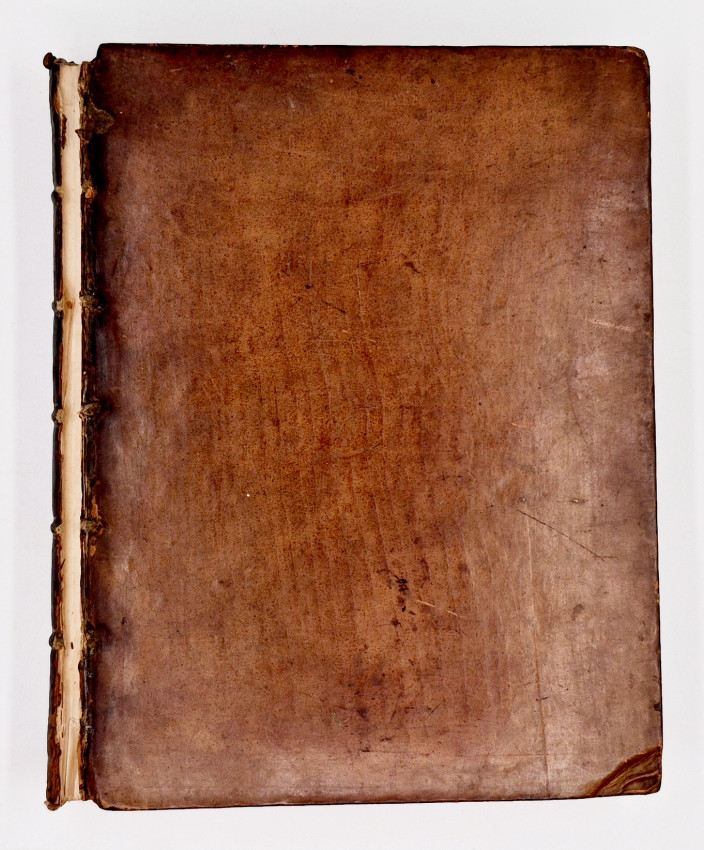
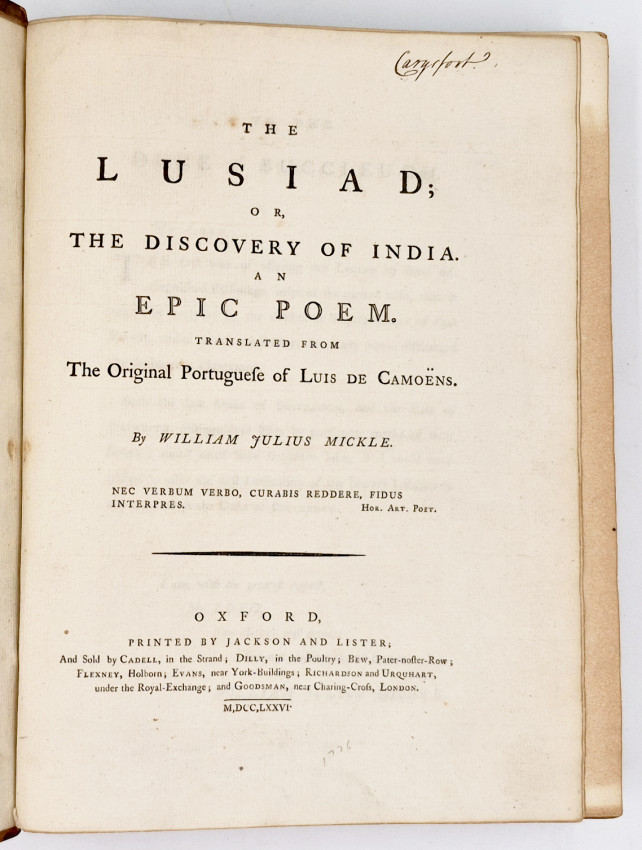
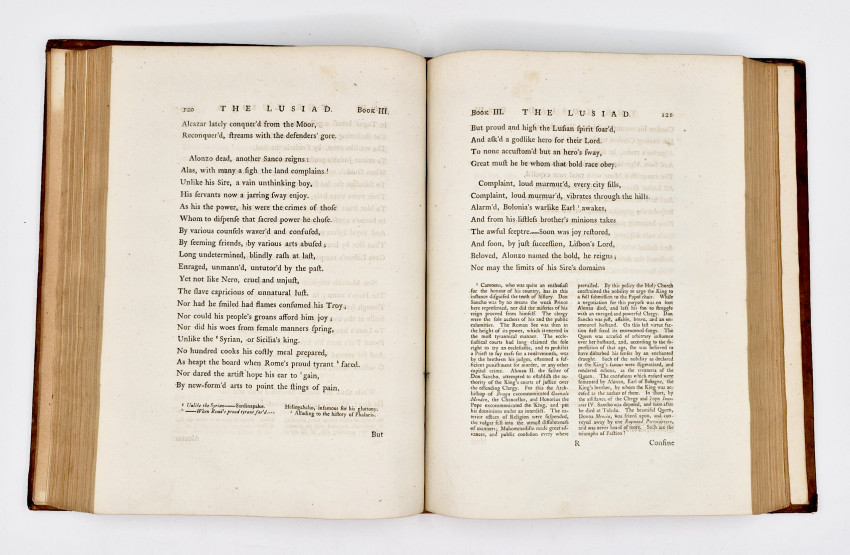




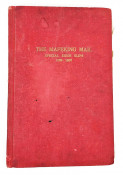

.jpeg)